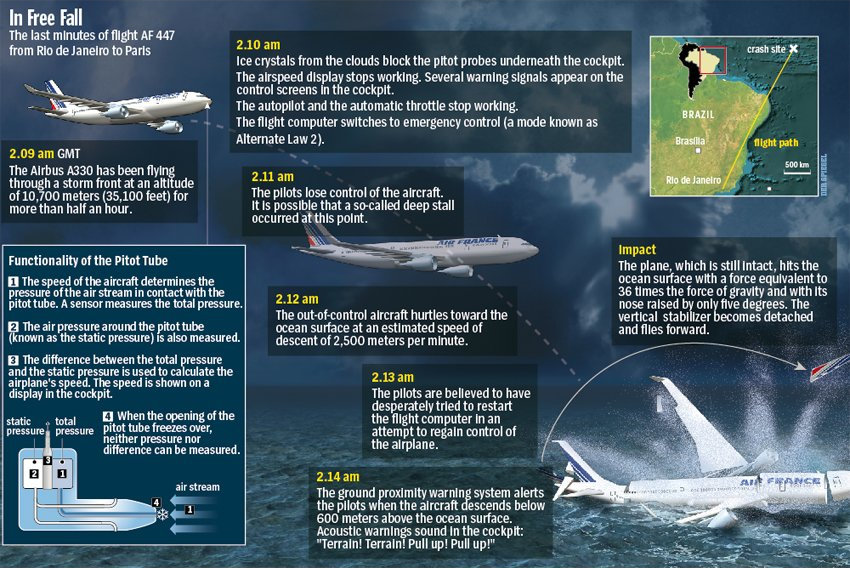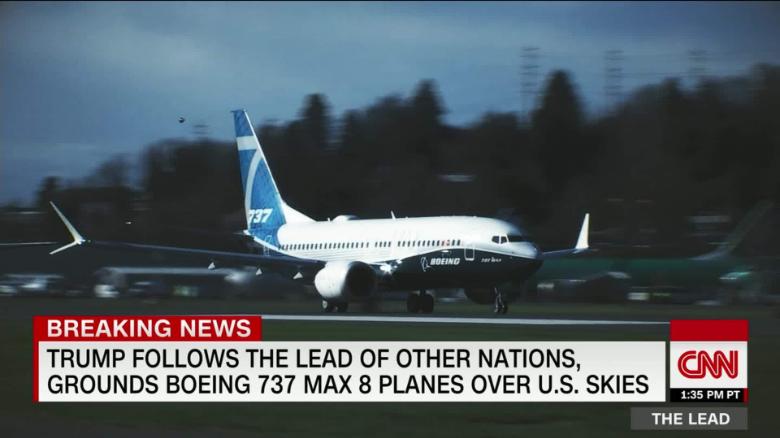Two (good) articles today about the riskiness of starting up an airline and the comments they got shared with, triggered some controversial thoughts with me.
The Articles + Comments
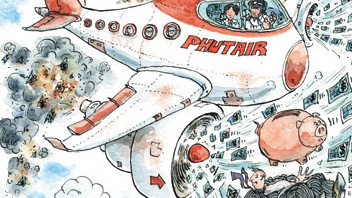 OAG summarized on the Evolution of airlines since 2019 (just before the Pandemic) to today. While their findings are very interesting, there is a tone in the summary and a resulting summarization by Tim (someone I generally value) that I happen to disagree with. OAG’s John Grant wrote:
OAG summarized on the Evolution of airlines since 2019 (just before the Pandemic) to today. While their findings are very interesting, there is a tone in the summary and a resulting summarization by Tim (someone I generally value) that I happen to disagree with. OAG’s John Grant wrote:
“Airline start-ups are incredibly difficult, cash rapidly disappears and securing the necessary operating licences frequently takes longer than expected and that’s even before sourcing aircraft, securing slots, avoiding the competition, and building all the necessary reservations systems and back-office support functions.”
And Tim shared the full post with a comment: “OAG is a great data resource for large scale review and schedule activity. This data really doe strike a chord. Airlines are a very risky business. This is very illustrative.”
The other one was an analysis by McKinsey, checking on the aviation value chain’s recovery shared by Patrick, which he introduced with these words: “McKinsey & Company has done an interesting analysis of the aviation value chain. For each subsector, they’ve calculated the “economic profit”, meaning (return on invested capital – weighted average cost of capital) x invested capital. In other words, are firms in that sector creating or destroying value? Their conclusion: only fuel suppliers and freight forwarders created value last year, and airports and airlines lost a lot!”
The Economist’s (My) Response
 As an economist by original education and having experience with Startups and Business Angels, I do happen to believe in a sound “business case”. As an airliner, I learned with American to focus on the business case. Like to reconsider twice before approving any waiver on fare rules or trying to upsell to the more expensive (i.e. more flexible) air fare. But I also learned the value of a renowned brand (AA) and service. Or to treat your colleagues as your most valuable customers – they help you sell each and every day. And can ruin a customer relation as quickly.
As an economist by original education and having experience with Startups and Business Angels, I do happen to believe in a sound “business case”. As an airliner, I learned with American to focus on the business case. Like to reconsider twice before approving any waiver on fare rules or trying to upsell to the more expensive (i.e. more flexible) air fare. But I also learned the value of a renowned brand (AA) and service. Or to treat your colleagues as your most valuable customers – they help you sell each and every day. And can ruin a customer relation as quickly.
In “global fares training”, I learned the cost of a flight transfer, something that I never forgot; thanks Ruth King (our fares trainer), I will never forget you.
At Northwest Airlines, I learned that airlines and their managers just sold “cheap”. With full flights in summer season, the airline generated losses on the transatlantic flights. A lesson I’ve seen later over and again. Most sales staff had neither information, nor idea about the “yield” they had to generate to fly profitable. Northwest focused on a minimum yield (revenue per seat-mile) half of that of American. Then sold at that yield as the standard “special fare” and making group offers or “reseller-rebates” below that rate aplenty. As I summarized 2019 on my article about why airlines keep failing, “know your cost”.
Yes, talking about Why Do Airlines Keep Failing. It’s the same response I have on the above two mentioned articles. And many like them. At ASRA 2008, I emphasized brand faces. But I also told those brand faces – the airline sales managers – that they are not there to sell the cheapest price. Anyone can do that, the Internet lives of that. A real sales manager understands that they have to sell the high-end tickets.
Live story, also happened today. Qatar Airways passengers (mother and three kindergarden-aged kids) arrived with >18 hour delay in Düsseldorf. German Rail (clerk) sold tickets to the customer to pick up the passengers that are neither change- nor refundable. So they had to buy completely new (expensive) tickets. A good clerk of this company renowned for it’s unpunctual trains (<60%) would have mentioned the possibility of a flight delay and sold the slightly more expensive tickets that allow for a change. Or at least the optional insurance.
So thinking back to my experiences with Northwest and other such airlines, it’s my questioning about KPIs as well. If my KPI is load and not revenue, I must expect to loose money. It remains beyond me, why airlines offer connecting flight at what a rough calculation on Ryanair or easyJet CASK/CASM (cost per available seat km/mile) proves as below cost, even without the “stop en-route” (landing fees, complexity, etc.). Those are managers who had a nap, when their tutors talked about sound economical calculation? And I keep questioning, why airlines publish loads without revenue per seat. To date, we have hundreds, if not thousands of flights every day, that fly full but loose money. All this is confirmed by the above mentioned and many other such articles.
The Fairy-Tale of Loss Making Airlines
 To claim “aviation” is a loss making business is true and can’t be further from the truth.
To claim “aviation” is a loss making business is true and can’t be further from the truth.
Yes, many airlines are loss making. And it fits the common reasons I elaborated before. And yes, you can make airlines very profitable, if you have a management that thinks just a bit outside the box and applies economic rules to their modus operandi (mode of operation). But this also goes in line with route development and other areas. If you don’t have your numbers under control and focus on the ones that are “good to sell to shareholders”, you’ll fail.
Like with any company, with any startup, in and outside the aviation sphere, we must constantly have an understanding of our cost. And of the competition. What is it our customer wants? There is a psychological price. If you missed that in your economics studies, make your Internet-search for it now. If you have sales teams, train them to upsell the seats. Sell the higher yield fares. Not at a discount, but at a value!
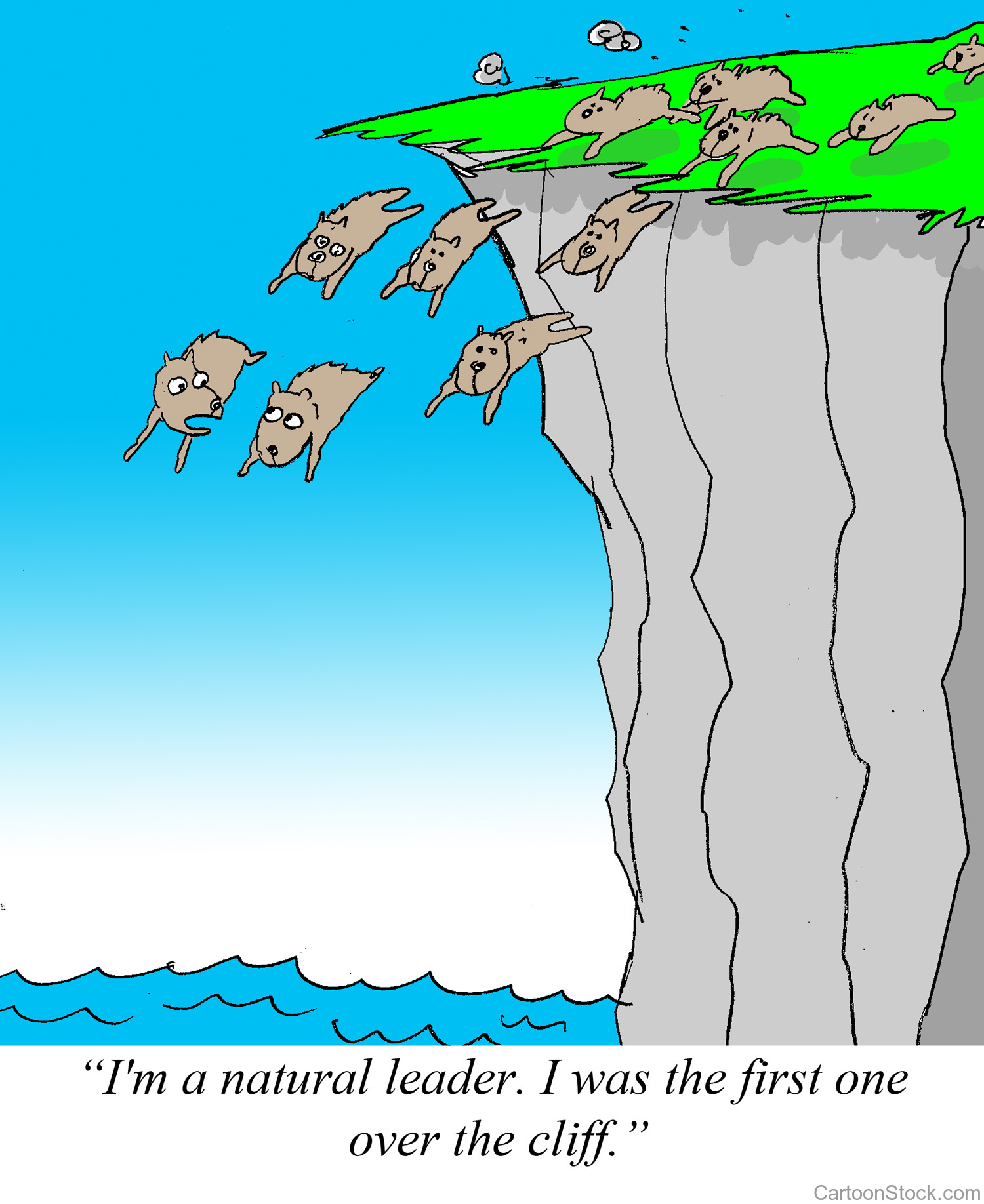 This is one reason, I do not believe we can make Kolibri ever happen by taking over an already failing or failed airline. Wrong structures, wrong thinking in place. I learned this lesson with Air Berlin. The force of inertia was simply too strong. There are some airline that make revenue, but even their managers I find often blindly “follow the worms” (a Pink Floyd referral, yes, the picture is lemmings).
This is one reason, I do not believe we can make Kolibri ever happen by taking over an already failing or failed airline. Wrong structures, wrong thinking in place. I learned this lesson with Air Berlin. The force of inertia was simply too strong. There are some airline that make revenue, but even their managers I find often blindly “follow the worms” (a Pink Floyd referral, yes, the picture is lemmings).
(That’s) The Way Airlines Operate
But unfortunately, all investors we talk to, always think inside their boxes. Can’t tell how many talks I had to radically change our approach and take A320 and do like everyone else does. Ain’t that contrary to the concept of Unique Selling Propositions?
And has ever a “disruptive investment” (another investor buzz word) been developed out of the box using the same thinking? The same values (I’m the cheapest)?
The others are usually starting to tell you that you have to start with smaller amount of money. Sure way to burn your money is a cheap business plan. As OAG writes “getting to size is so important”. You can’t produce a low cost in small numbers. For us, the ideal mix is seven aircraft, where the “administrative overhead cost” becomes manageable. i.e. You have the same cost if you maintain one – or seven aircraft. The same reservations office (just less staff and calls), only little less marketing. You must outsource your operations (at cost) to share the necessary organization with other small airlines. Etc., etc.
 To date, I am still working with consulting companies reviewing airline business plans. Aside the usual failure issues, size is a recurring issue. Another being the lack of fallback in case of flight disruptions, may they be caused by technical issues, weather or other events. Their focus on cheap “human resources” and missing team building results in friction and internal competition that further weakens their product offering.
To date, I am still working with consulting companies reviewing airline business plans. Aside the usual failure issues, size is a recurring issue. Another being the lack of fallback in case of flight disruptions, may they be caused by technical issues, weather or other events. Their focus on cheap “human resources” and missing team building results in friction and internal competition that further weakens their product offering.
But even taking that into account, we believe the business and financial plans we developed are sound. And profitable from the outset. With a focus on services and a military-style responsibility “for ours” (no “HR” in that company), a “service-focused concept”. Everyone to pull on the same side of the rope. Yes, not starting with a dead corpse, trying to revive, adds some bureaucratic hurdles. But it allows you to think outside the box and instead of following the worms (or other airlines), to do things “right”.
So ever since I entered into the business, I learned at American Airlines under Bob Crandall how to do things right. And learned over and again that the same mistakes are made by short-sighted, narrow-minded managers. And I know all the reasoning used to distract and divert off the incompetence to operate an economically sound business. Usually, I account this as “no faith in your brand”. That then goes along with topics I mentioned before, like brand dissolution (airlines are often academic example), missing USPs, etc. – Cobalt CEO told me about their USP shortly before their demise “We are Cypriotic”. Seriously? When I started, Lufthansa was the brand. Lufthanseat was the employee. All employees of American Airlines knew “Proud to be AAmerican”. Then came the button counters. And mighty AAmerican was taken over by their once-small rival U.S. Airways. Another box of memories.
So yes, airlines are often a loss making business. With bureaucrats leading them into disaster. Sometimes fast, often times a veeeery long death. Air Berlin and Alitalia are very good examples. “Too big to fail”? Simply “prestigious”? And there are “the others”. Airlines that have an idea about what they are doing. That know their niche(s). That know their cost and marketing. That value their brand. That build a reputation. Until button counters (aka. bureaucrats) take over.
I hope that someone of my hundreds if not thousands of readers (hard to believe, that’s what my server stats claim I’d have) knows some investor with the guts to understand that profitable aviation and sustainable aviation can be the same thing. That the stories those consultancies and their statistics and reports tell have two sides to the coin. And that we get a chance to proof, that climate neutral flying is no heresy, but the future of flight.
Food for Thought – Jürgen
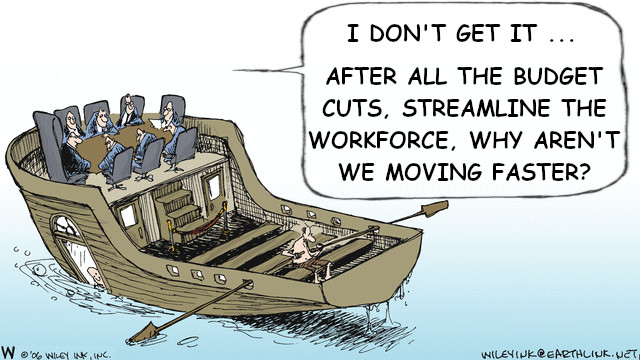
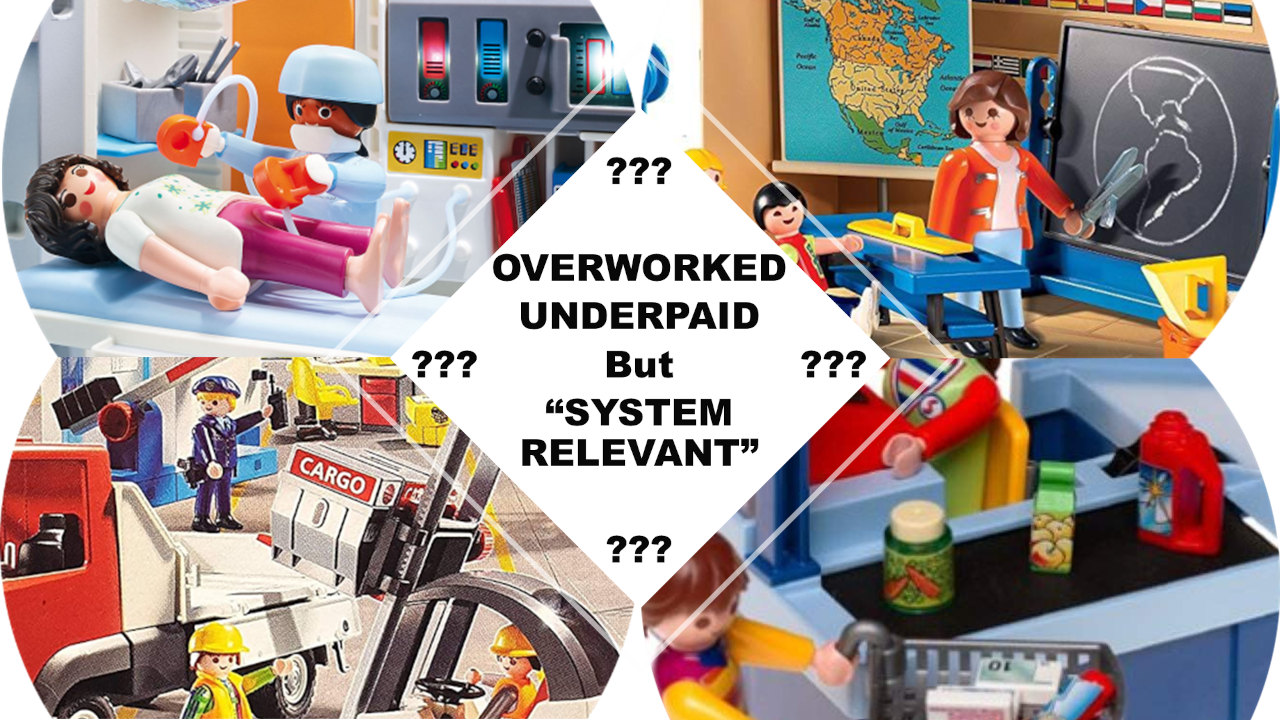 Is your job “system relevant”? If you work in home office, I can tell you the answer is No. If you work in consulting, I can very likely tell you the answer being No. Working in aviation and transport, the answer very likely is No. And if your salary is above average, the answer also very likely is No.
Is your job “system relevant”? If you work in home office, I can tell you the answer is No. If you work in consulting, I can very likely tell you the answer being No. Working in aviation and transport, the answer very likely is No. And if your salary is above average, the answer also very likely is No.
 My “intern” boss (again) taught me respect for everyone. The guy on the fork-lift, the cleaners, truck drivers and “secretaries” (yeah, we still had those). He taught us to set up the coffee when it was empty and not bother the secretaries. To clean up ourselves to make the cleaners’ jobs easier. To think beyond our petty box as “office workers” and value the hard work of the real workers. Also to question, but then also embrace the value of our work. IF we added value.
My “intern” boss (again) taught me respect for everyone. The guy on the fork-lift, the cleaners, truck drivers and “secretaries” (yeah, we still had those). He taught us to set up the coffee when it was empty and not bother the secretaries. To clean up ourselves to make the cleaners’ jobs easier. To think beyond our petty box as “office workers” and value the hard work of the real workers. Also to question, but then also embrace the value of our work. IF we added value.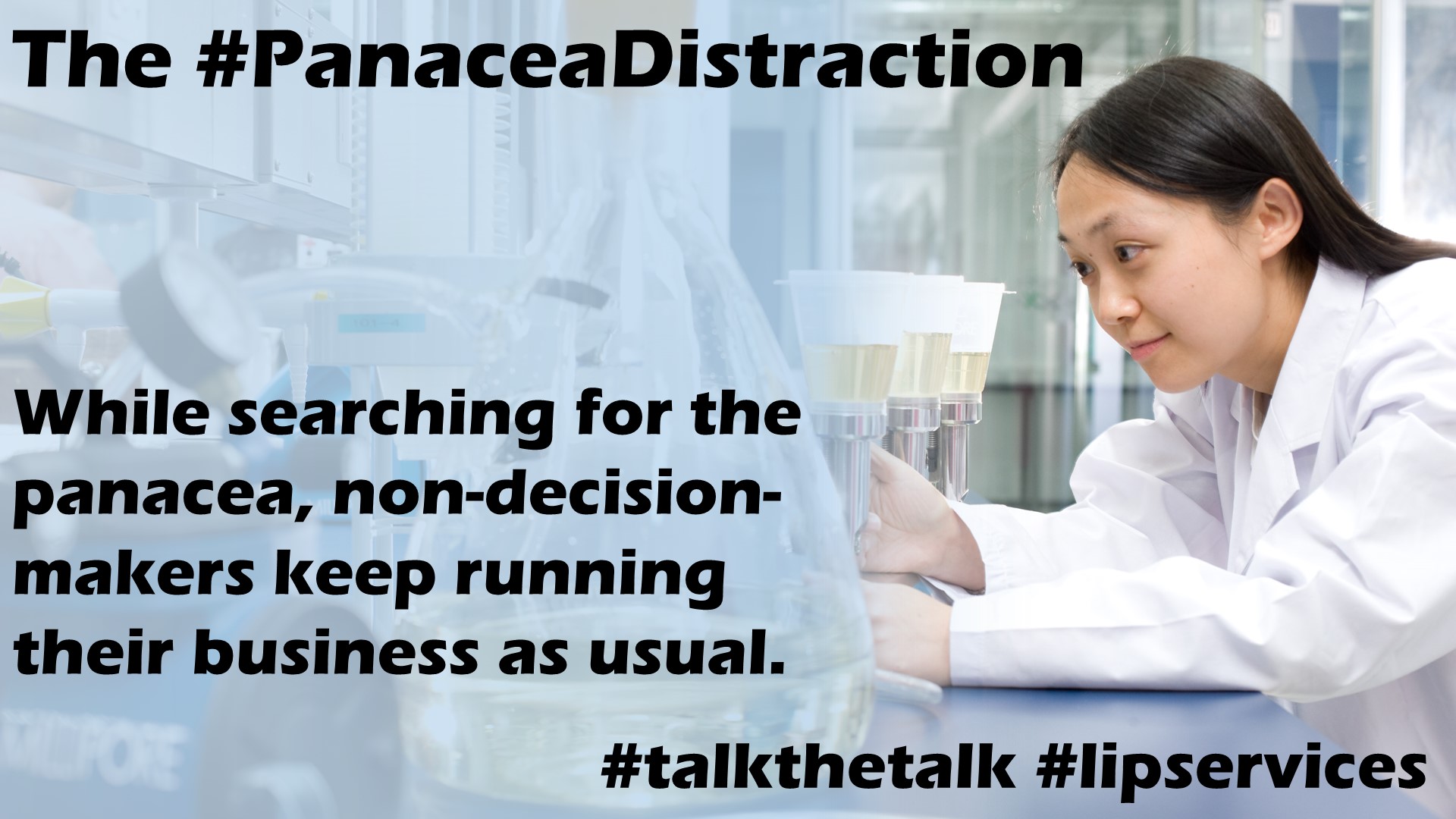 I recently attended a multi-week project by United Nations Climate Action on Circular Economy. And the need for lifecycle-assessment. But it was also mostly #talkthetalk and academic ideas. And I had several objectives that then led to my image about the panacea distraction.
I recently attended a multi-week project by United Nations Climate Action on Circular Economy. And the need for lifecycle-assessment. But it was also mostly #talkthetalk and academic ideas. And I had several objectives that then led to my image about the panacea distraction.



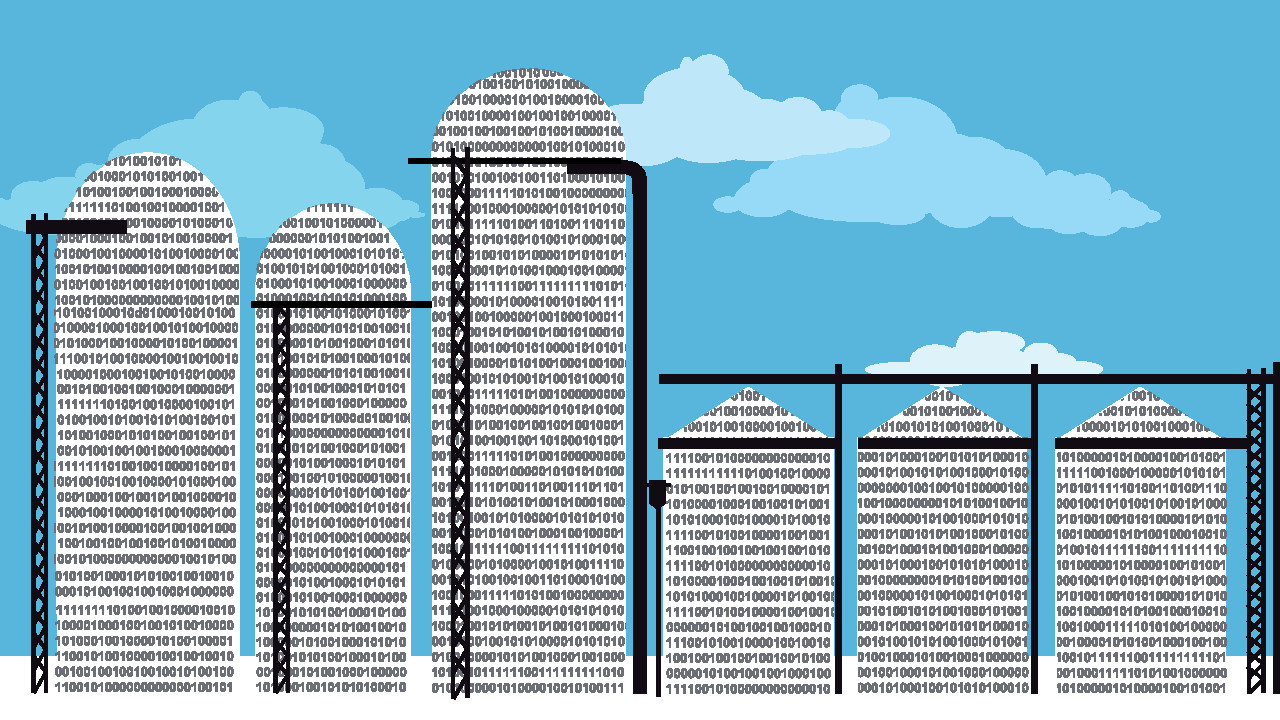 The main reason, I see consulting, outsourcing and cloud computing critical is the development of information silos. Not you own the important information, but “someone else”, someone outside your company. It can be a consultant, it can be a service company or an IT-system.
The main reason, I see consulting, outsourcing and cloud computing critical is the development of information silos. Not you own the important information, but “someone else”, someone outside your company. It can be a consultant, it can be a service company or an IT-system. My first experience with cloud computing was Sabre, Amadeus, but SAP was my personal experience with the SAAS model and it’s most negative repercussion. Good for the software provider, bad for the user. You bind yourself to the ecosphere of the software provider. For good or for bad. To change later is being made so difficult and expensive, it’s virtually impossible. Where the data might still be available, the computing “rules” are mostly not, you have to reengineer from scratch – there is a big consulting industry out there, specializing on such jobs, usually not talking about thousands in cost but millions.
My first experience with cloud computing was Sabre, Amadeus, but SAP was my personal experience with the SAAS model and it’s most negative repercussion. Good for the software provider, bad for the user. You bind yourself to the ecosphere of the software provider. For good or for bad. To change later is being made so difficult and expensive, it’s virtually impossible. Where the data might still be available, the computing “rules” are mostly not, you have to reengineer from scratch – there is a big consulting industry out there, specializing on such jobs, usually not talking about thousands in cost but millions.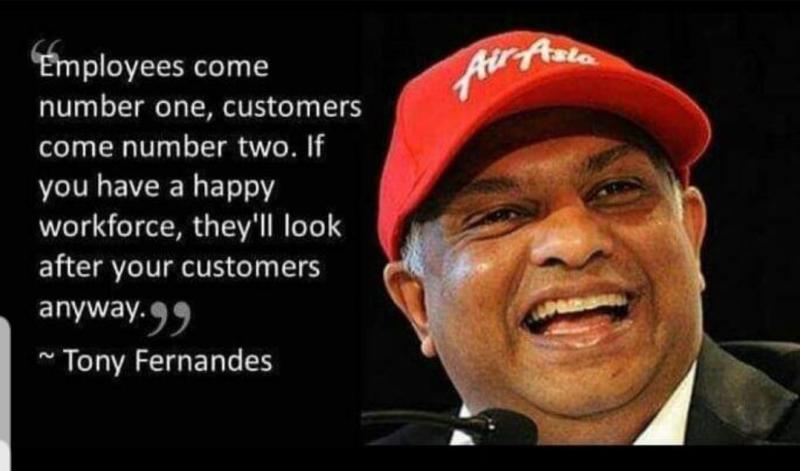
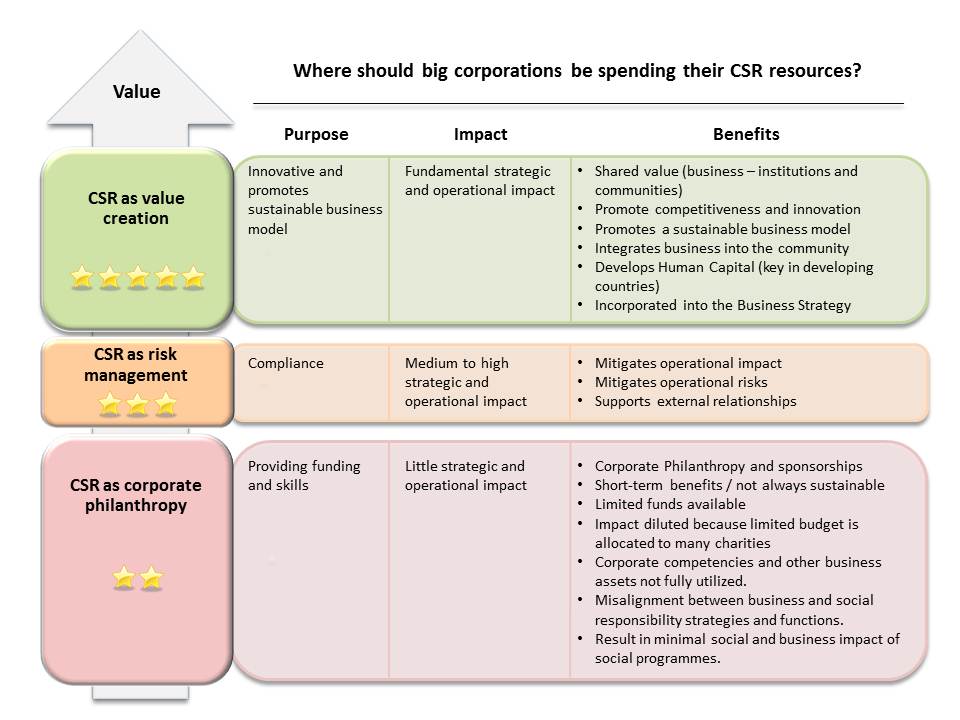 Reading the
Reading the 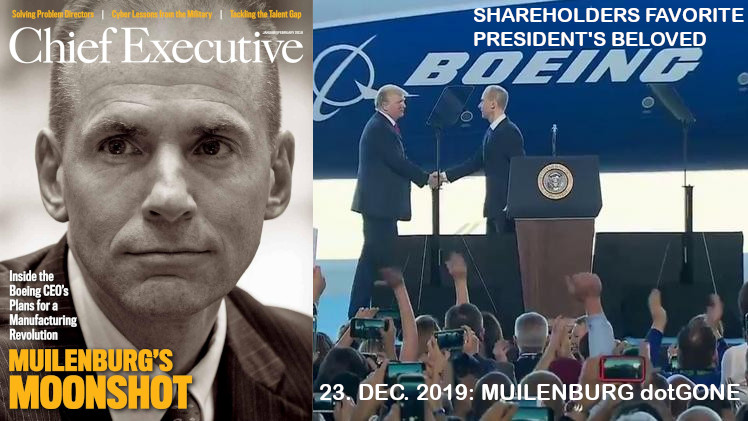 If you focus on shareholder value, human resources and only your own, personal profit, you end up in a deep, dark pit. Sometimes, like Boeing’s Muilenburg and others who have been on the Olymp, just for that much deeper a fall. Examples aplenty.
If you focus on shareholder value, human resources and only your own, personal profit, you end up in a deep, dark pit. Sometimes, like Boeing’s Muilenburg and others who have been on the Olymp, just for that much deeper a fall. Examples aplenty.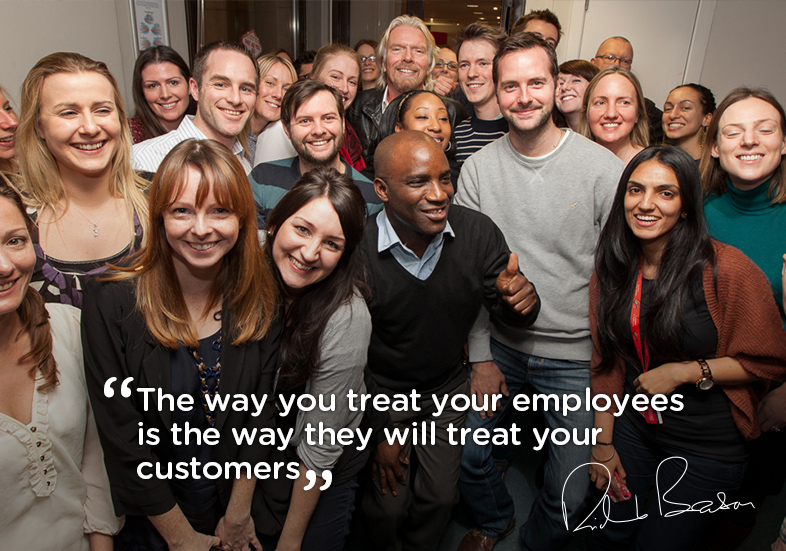 Corporate Social Responsibility starts with your immediate environment: Your own organisation!
Corporate Social Responsibility starts with your immediate environment: Your own organisation! Aside the example i used on the different approaches between
Aside the example i used on the different approaches between 
 It might be surprising to the bean counters (accountant-mindset “managers”) that all of our related “cost centers” turned out to be no just driving loyalty, but to be true profit centers and vital in our attempt to melt the cost factors to competitive levels. As a start-up, investing into all the company’s assets, you must be competitive against all those large, established companies like easyJet owning around 70% of their fleet, cost down to maintenance, with roughly 25% being paid off and around 5% being leased to cover ad hoc opportunities (like taking over Air Berlin routes). And while now being a “burden” in Corona times, airlines cannot drop out of leasing either, so the cost still is there. But those airlines can secure credits based on their (aircraft) assets. To develop profit centers that allow to cut down the cost to competitive levels such ain’t a mere strategy, but a vital need.
It might be surprising to the bean counters (accountant-mindset “managers”) that all of our related “cost centers” turned out to be no just driving loyalty, but to be true profit centers and vital in our attempt to melt the cost factors to competitive levels. As a start-up, investing into all the company’s assets, you must be competitive against all those large, established companies like easyJet owning around 70% of their fleet, cost down to maintenance, with roughly 25% being paid off and around 5% being leased to cover ad hoc opportunities (like taking over Air Berlin routes). And while now being a “burden” in Corona times, airlines cannot drop out of leasing either, so the cost still is there. But those airlines can secure credits based on their (aircraft) assets. To develop profit centers that allow to cut down the cost to competitive levels such ain’t a mere strategy, but a vital need.
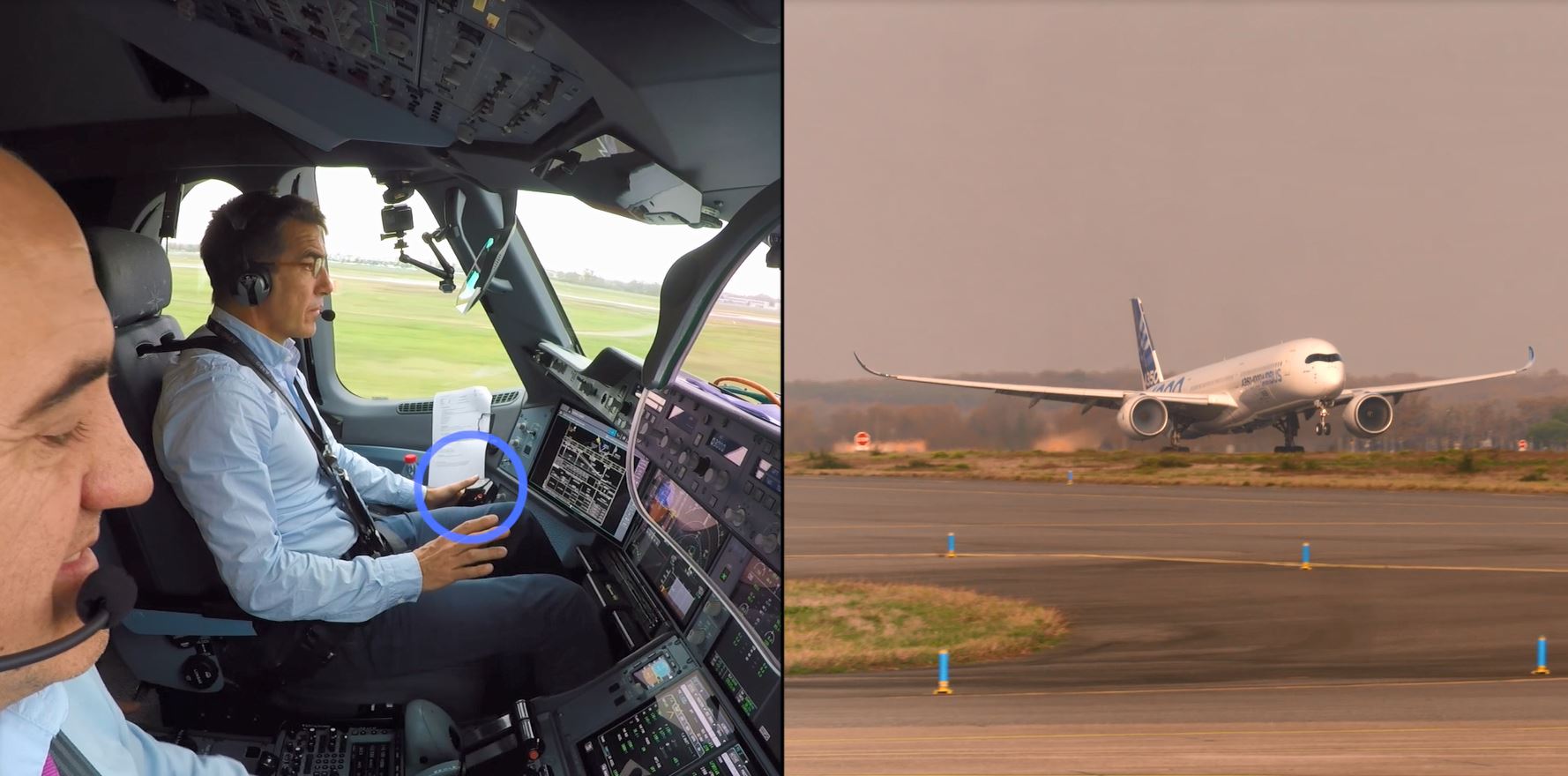

 Computer Literacy
Computer Literacy Cloud Computing
Cloud Computing Aircraft System Redundancy
Aircraft System Redundancy Faith in The Computer
Faith in The Computer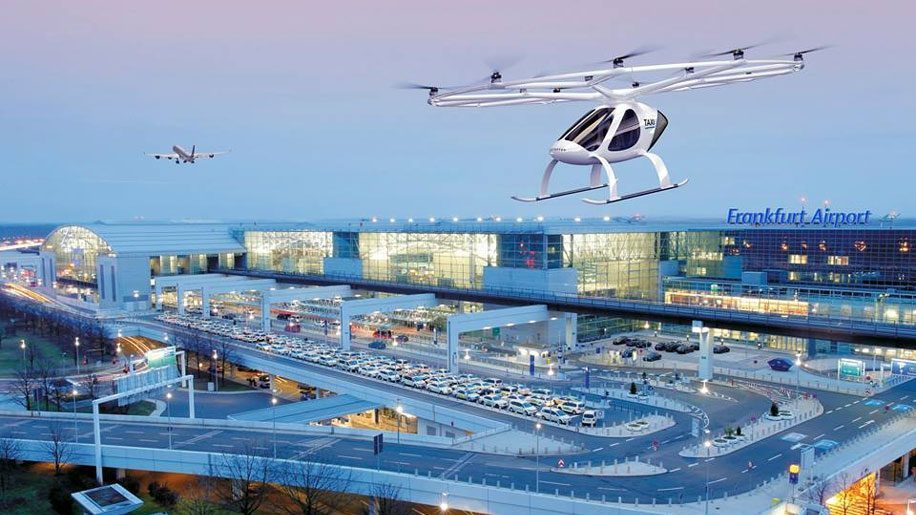 Fly by Wire, Drones and Air Taxis
Fly by Wire, Drones and Air Taxis A similar case is the automated drones as envisioned by Amazon, DHL and others, for automatic passenger delivery. As the air taxis, they will rely on a fully-automated flight planning and flight plan filing with the authorities’ computers. Simply to avoid in-air-collisions.
A similar case is the automated drones as envisioned by Amazon, DHL and others, for automatic passenger delivery. As the air taxis, they will rely on a fully-automated flight planning and flight plan filing with the authorities’ computers. Simply to avoid in-air-collisions.![“For those who agree or disagree, it is the exchange of ideas that broadens all of our knowledge” [Richard Eastman]](https://foodforthought.barthel.eu/wp-content/uploads/2016/08/eastman_quote.jpg)
![Richard Eastman “For those who agree or disagree, it is the exchange of ideas that broadens all of our knowledge” [Richard Eastman]](http://foodforthought.barthel.eu/wp-content/uploads/2016/08/eastman_quote.jpg)
 … or the question of leeching.
… or the question of leeching.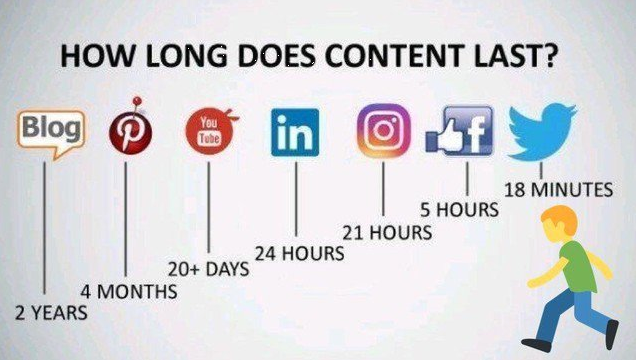
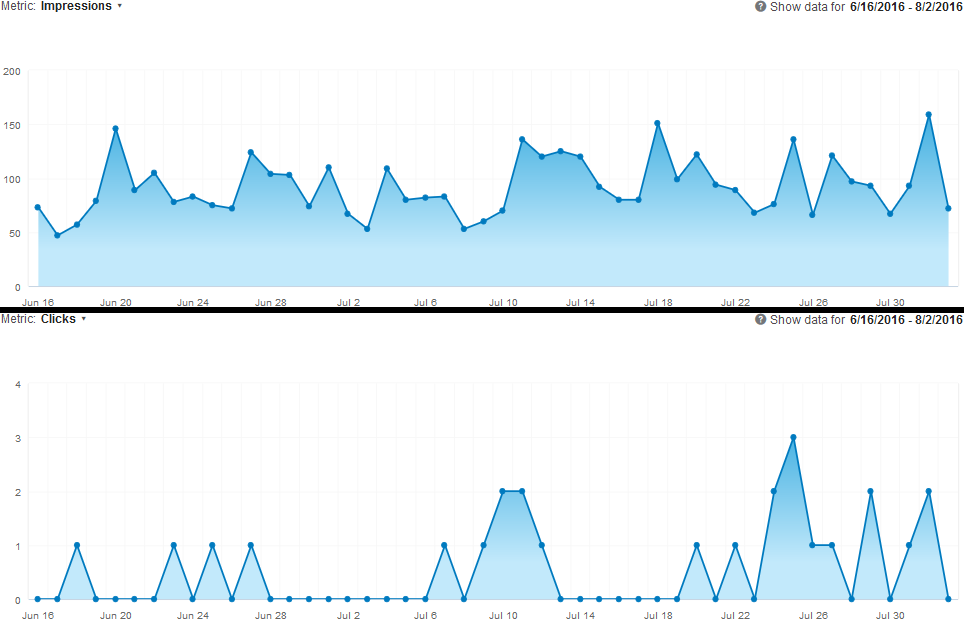

![Lunchmoney Lewis - I've Got Bills [Unhyping Online Marketing] Lunchmoney Lewis - I've Got Bills [Unhyping Online Marketing]](https://i.ytimg.com/vi/ETM8rrqrTW8/hqdefault.jpg)
![Snow Patrol - Calling in the Dark We are Listening ... and we're not Blind! This is your Life. This is your Time [Snow Patrol - Calling in the Dark]](http://foodforthought.barthel.eu/wp-content/uploads/2020/01/CallingintheDark.jpg)

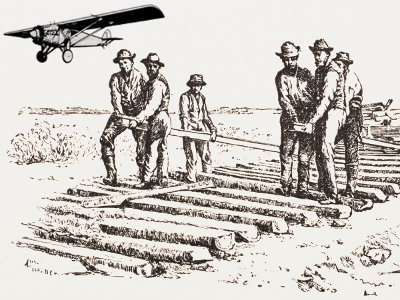 Back in the 90’s, I became the honorary member of the
Back in the 90’s, I became the honorary member of the 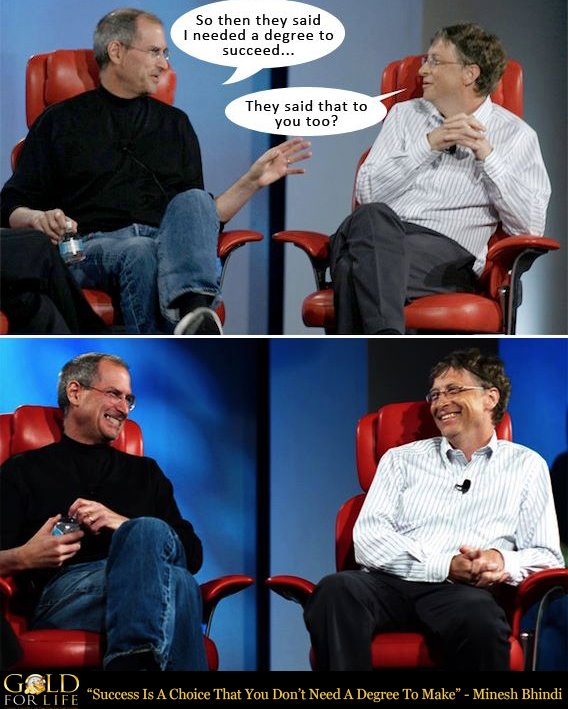 Speaking about Sales Managers ignorance to the cost of their airline’s operation, I found the fish stinks from the head first being a true proverb. I’ve met too many investors, airline managers, airport managers, not understanding the cost involved. Then they try to compete on the price with the large, established airlines. I have no idea, what those managers learned, I heavily doubt the quality of university education…
Speaking about Sales Managers ignorance to the cost of their airline’s operation, I found the fish stinks from the head first being a true proverb. I’ve met too many investors, airline managers, airport managers, not understanding the cost involved. Then they try to compete on the price with the large, established airlines. I have no idea, what those managers learned, I heavily doubt the quality of university education…
 From Cobalt, Germany, Primera (alphabetical order), feedback said “disruption cost”, attributed i.e. to EU261 “passenger rights” to having been a major reason for their financial troubles. Still, most business plans, I was asked to have a look at last year failed to address that issue at all. Or they used “easyJet figures”, neglecting the fact that easyJet has a spare fleet to cover and minimize the effects of flight disruptions.
From Cobalt, Germany, Primera (alphabetical order), feedback said “disruption cost”, attributed i.e. to EU261 “passenger rights” to having been a major reason for their financial troubles. Still, most business plans, I was asked to have a look at last year failed to address that issue at all. Or they used “easyJet figures”, neglecting the fact that easyJet has a spare fleet to cover and minimize the effects of flight disruptions.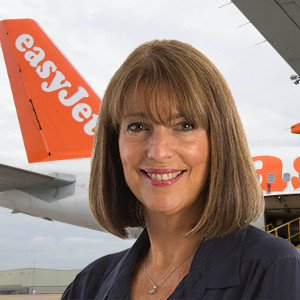 Carolin McCall understood “service” to be a difference maker. Since her leave, very quickly they dropped from my “role model” and preferred airline to “me too”. Taking over aircraft from Air Berlin with additional and “bulkier” seats, I suddenly experienced less leg space. Their airport manager at one of their hubs found himself quickly “obsolete”, the new paradigm being “cost savings”. In turn they seized my (half-sized) cabin bag due to “full overheads”. Aside the seat next to me being empty, there was more than enough space below the seat. Heard meanwhile from many frequent flyers they no longer wait if they have an aisle seat but make sure they have their seat and the cabin baggage with them. Would be indeed interesting to have some statistics how that impacts boarding time.
Carolin McCall understood “service” to be a difference maker. Since her leave, very quickly they dropped from my “role model” and preferred airline to “me too”. Taking over aircraft from Air Berlin with additional and “bulkier” seats, I suddenly experienced less leg space. Their airport manager at one of their hubs found himself quickly “obsolete”, the new paradigm being “cost savings”. In turn they seized my (half-sized) cabin bag due to “full overheads”. Aside the seat next to me being empty, there was more than enough space below the seat. Heard meanwhile from many frequent flyers they no longer wait if they have an aisle seat but make sure they have their seat and the cabin baggage with them. Would be indeed interesting to have some statistics how that impacts boarding time.
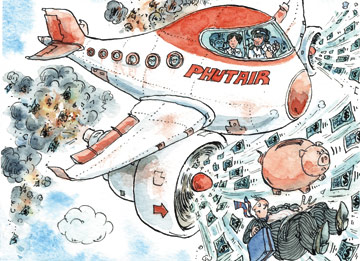 As mentioned above and before and again. I usually don’t believe in the survival of virtual airlines. A few leased aircraft of the same kind than their competitors, outsourced IT, ground handling, maintenance and other “services”, often even the call and service center (to “GSAs”). Then they believe to be competitive to the large players. If you operate in an un- or under-served market, you may be able to ask for the higher ticket prices required by your increased cost levels. Most airlines I see trying to take off or change their business to survive try to compete to the large network and low cost carriers, but without a secure market (using the same aircraft).
As mentioned above and before and again. I usually don’t believe in the survival of virtual airlines. A few leased aircraft of the same kind than their competitors, outsourced IT, ground handling, maintenance and other “services”, often even the call and service center (to “GSAs”). Then they believe to be competitive to the large players. If you operate in an un- or under-served market, you may be able to ask for the higher ticket prices required by your increased cost levels. Most airlines I see trying to take off or change their business to survive try to compete to the large network and low cost carriers, but without a secure market (using the same aircraft).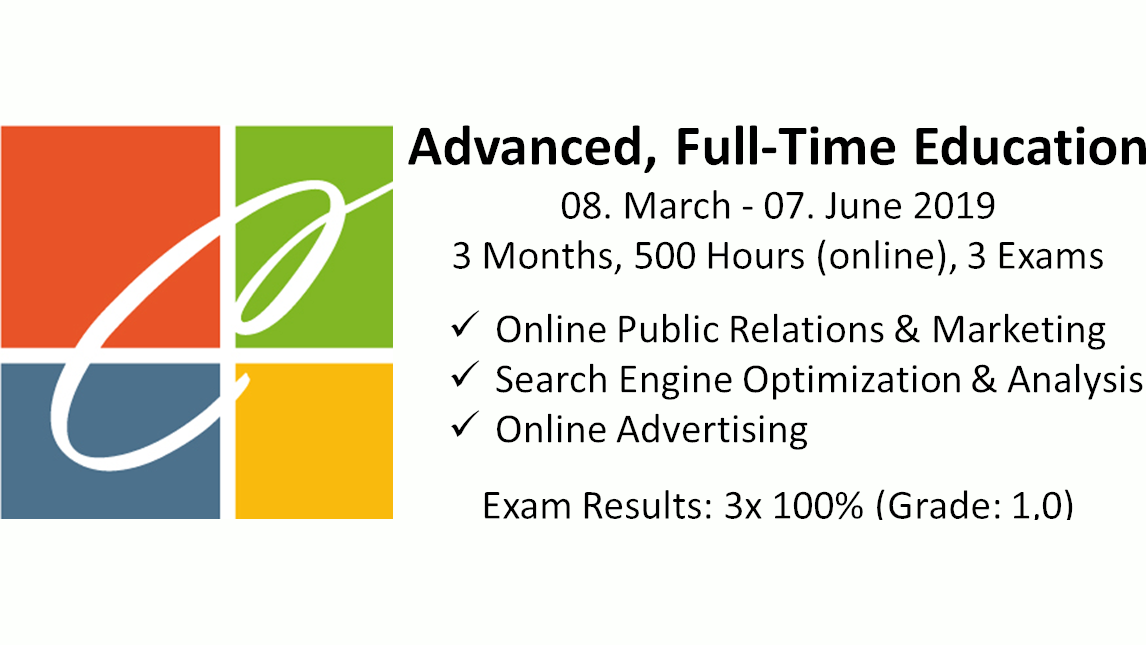

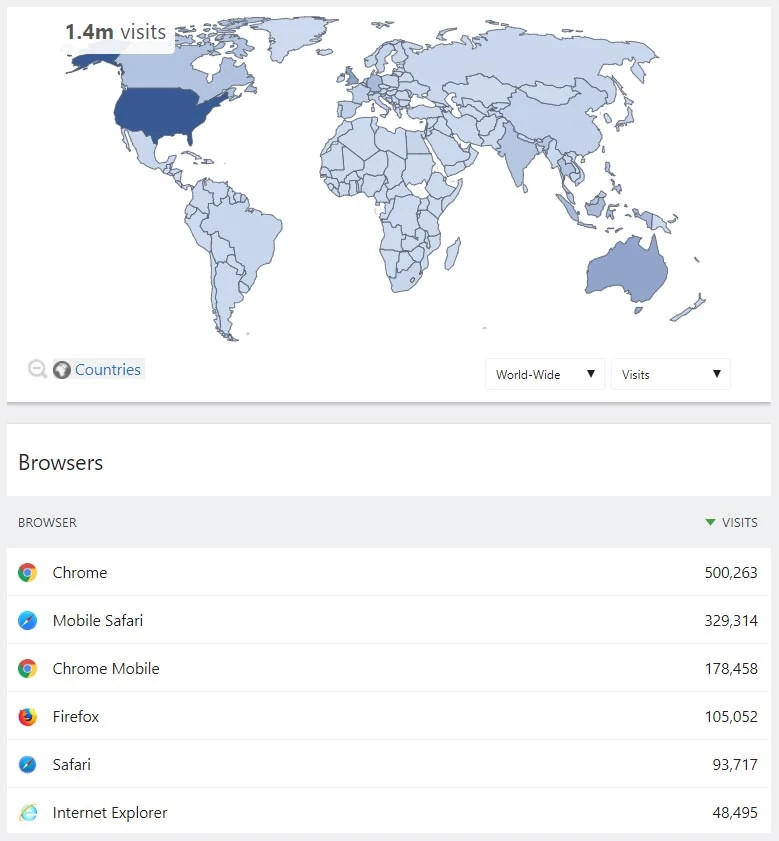
 If you have subscribed to the
If you have subscribed to the 


 But there was another article even more to the point: “
But there was another article even more to the point: “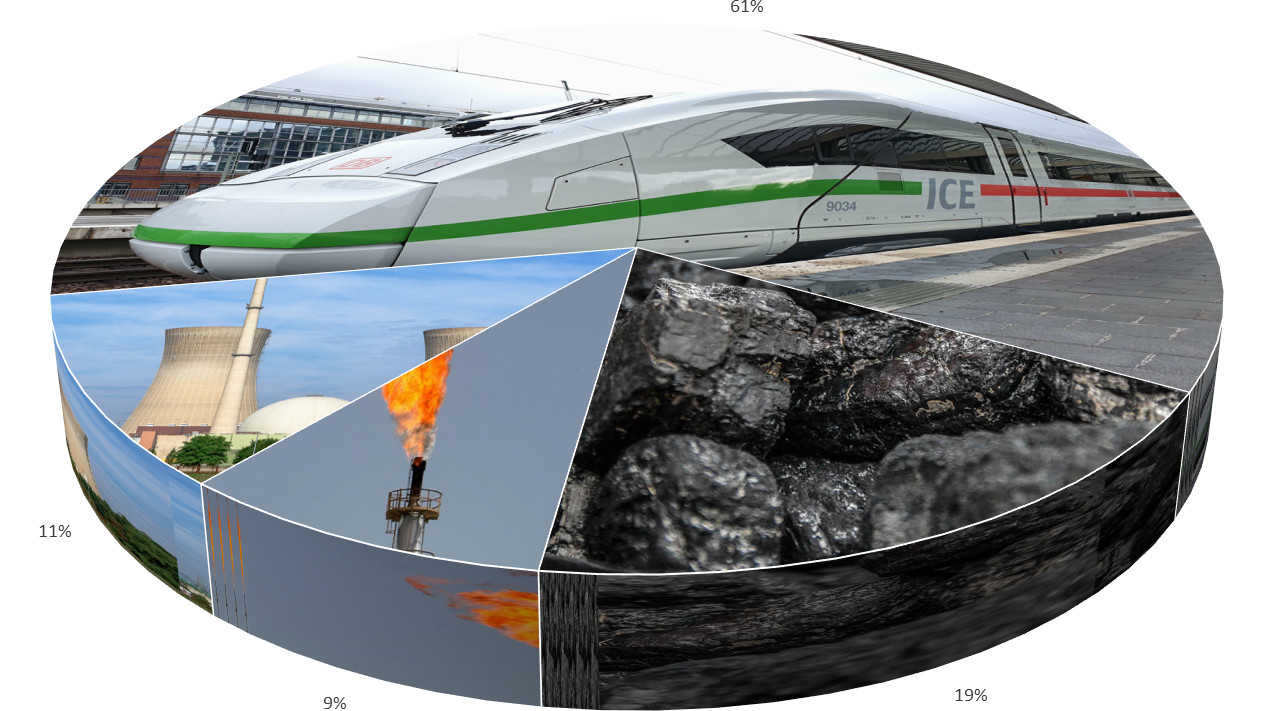
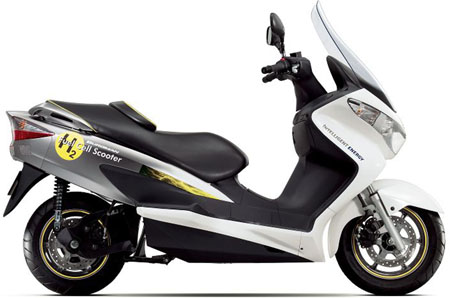 Given the devastating
Given the devastating 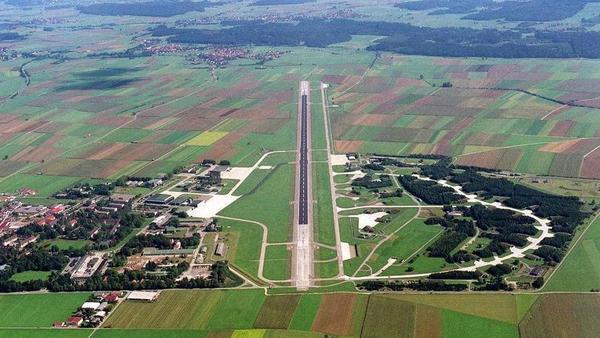 There is an important advantage of air travel to both rail and road that is frequently not addressed. The issue of ground sealing!
There is an important advantage of air travel to both rail and road that is frequently not addressed. The issue of ground sealing! A highway with four lanes is about 31 m wide with about 24 m being sealed. A 50 km highway such seals about 1.2 million m², so three times as much as a single airport. Highways are known to be an insurmountable obstacle for wildlife.
A highway with four lanes is about 31 m wide with about 24 m being sealed. A 50 km highway such seals about 1.2 million m², so three times as much as a single airport. Highways are known to be an insurmountable obstacle for wildlife.
 Rail
Rail



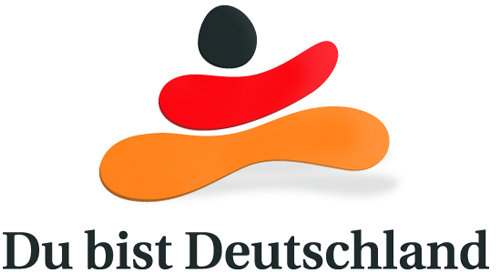 In Germany we had a barrel-burst campaign “You are Germany” – what do you do to make things better?
In Germany we had a barrel-burst campaign “You are Germany” – what do you do to make things better?